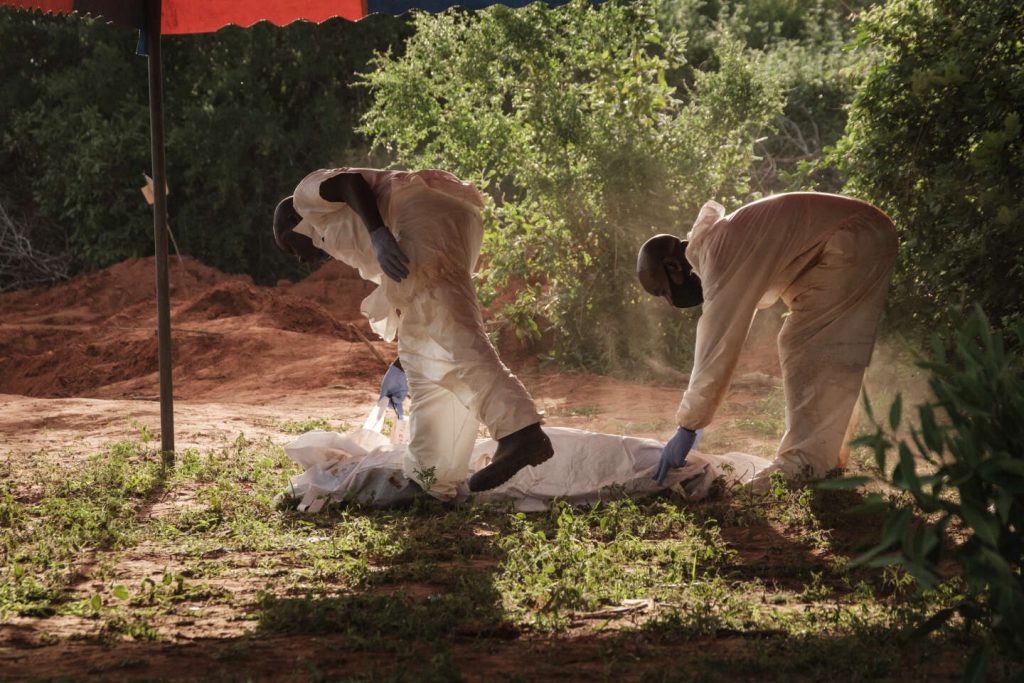The Kenyan authorities have begun returning the bodies of victims of the “Shakahola forest massacre” nearly a year after the practices of an evangelical sect were revealed. At least four bodies were handed over to a family in Malindi, where a self-proclaimed pastor named Paul Nthenge Mackenzie preached fasting until death to “meet Jesus” before the end of the world he predicted for August 2023. The bodies of 429 victims have been found in Shakahola since the start of the search in April 2023. It took close to a year to identify the bodies using DNA, and families have had to organize funerals themselves, as the government did not provide assistance.
Paul Nthenge Mackenzie, a former taxi driver turned self-proclaimed pastor, has been in custody since April 14, following the discovery of the first victims in Shakahola forest. Investigations in the coastal region of Kenya have revealed a total of 429 bodies in graves or mass graves, with deaths occurring over multiple years. Autopsies showed that the majority died of starvation, while some, including children, were strangled, beaten, or suffocated. Families have had to wait nearly a year for DNA profiling due to delays in reagents and equipment, raising concerns about the slow pace of justice.
The National Commission on Human Rights in Kenya criticized the slow process and accused authorities of withholding results for security reasons, violating cultural rights to culturally acceptable and dignified burials. The families of the victims are anxious to bring closure to the matter. Mackenzie, who faces charges of “terrorism,” “torture,” and “cruelty” towards children, has been in custody since April 14, 2023. The slow progress in identifying and returning remains has left many families grieving and seeking answers and justice for their lost loved ones.
William Ponda, who lost family members in the Shakahola massacre, expressed relief at finally receiving the bodies but lamented the state they were in as mere skeletons. The discovery of the bodies was triggered by the disappearance of two of Francis Wanje’s grandchildren, leading to the investigation in which eight of his family members were found among the victims. The delays in the identification process compounded the families’ grief as they had to bear the financial burden of organizing multiple funerals.
The case of the Shakahola forest massacre has highlighted the dangers of extremist beliefs and the tragic consequences they can have on vulnerable individuals and families. Mackenzie’s actions as a cult leader and the subsequent deaths of hundreds of individuals have shocked the nation and raised important questions about the responsibilities of religious leaders and the role of the government in ensuring the safety and well-being of its citizens. The long road to justice and closure for the families of the victims serves as a stark reminder of the lasting impact of such horrific events on communities and society as a whole.


